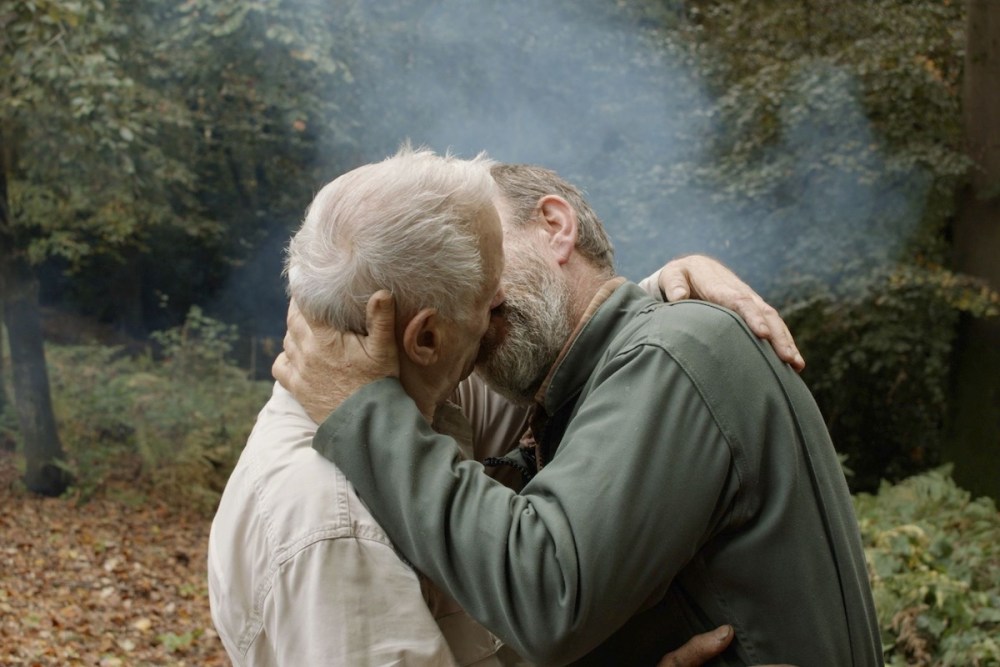Less a film than notes towards a feature film, A Prince dwells on horticulture and gay male sex with a spirit of inquiry. Pierre Creton uses voice-over instead of dialogue to tell the story of Pierre-Joseph (Antoine Pirotte as a young man; Creton as adult), who takes a job as an apprentice gardener in France under the tutelage of Adrien (Pierre Barray) and Alberto (Vincent Barré) — a tutelage that encompasses an eventual threesome. Watch A Prince not for dramatic hairpin turns; instead, savor its quiet rural montages and a refreshing lack of histrionics in depicting sex between old and young. The film lingers in the mind.
Sometimes the voice-over parts and the characters whose thoughts they’re limning don’t match, but this works in A Prince‘s favor: memory creates these gaps. “The story really began when Kutta arrived,” Françoise, who adopts the boy. tells the audience (Manon Schaap but narrated by Françoise Lebrun). At first it looks like Kutta’s story, an interesting one about a South Asian boy raised by an Anglo-French owner of a gardening school in Normandy. Then horticultural student Pierre-Jean enters, committed to the strangeness of the plant world and the mysterious demands of the flesh. When Creton shoots the young Pierre-Jean’s hand in closeup as it approaches his cousin’s in the same bread-sopping plate it’s erotic in a familiar way — many of us have longed for this flitting contact. On reaching maturity he becomes the lover of botany teacher Alberto and nursery owner Adrien, inspiring co-writer Creton’s more florid passages, the most laughable of which is: “His cum, after a day in the forest, tasted of beechnuts.” The best sommelier in northeast France couldn’t match this precision. Better are aperçus like “Being narcissistic is the opposite of self-love.” Creton and cinematographers Antoine Pirotte and Léo Gil Mela show less interest in pretty tableaux than in showing the sex juxtaposed against the low mid-afternoon sizzle of crickets and the violent green of the foliage.
Influenced by devotees of open-form film like Agnès Varda and Chantal Akerman, A Prince is also Godardian in the way it uses narration and montage as a means of showing character, and in its air of twice-told tale it suggests one of W.G. Sebald’s fictions about people who lived quietly but turned out to have affected the course of history. It makes no demands on the audience; its 78-minute running time is just long enough (the 16:9 ratio adds to the sense of compression). It’s easy to imagine Pierre-Jean out there in the forests of France shouting things like “I found some quillworts!” to himself.
Shortlisted for the Queer Palm at last year’s Cannes Film Festival
GRADE: B+

